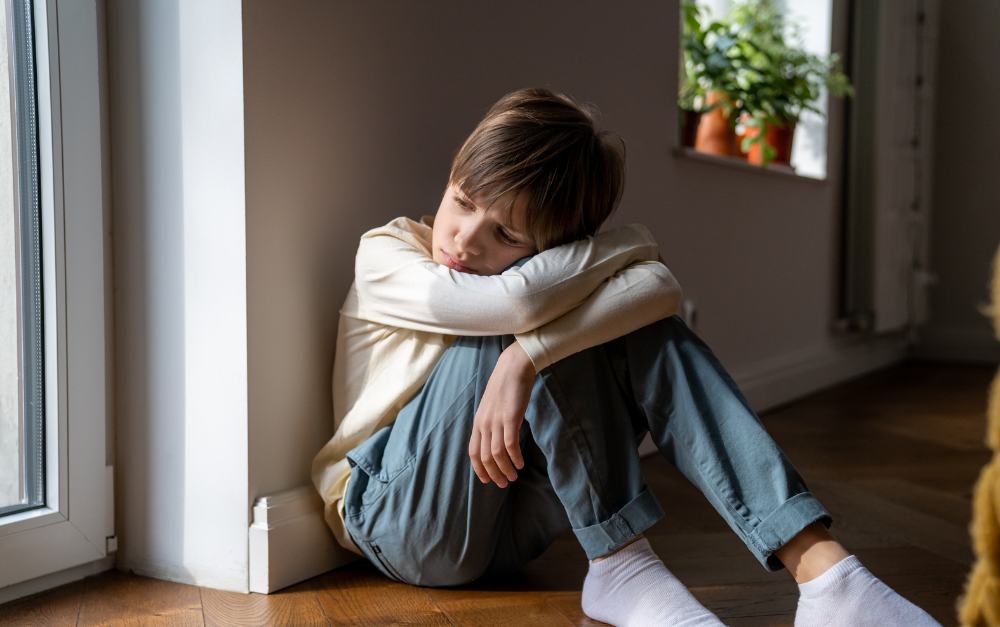Depression in Children & Adolescents – Mia Manfredi, APRN
IPC Admin | August 24, 2021

Mia Manfredi is an advanced practice registered nurse (APRN) with Integrated Psychiatric Consultants, as well as a board-certified psychiatric nurse practitioner and board-certified family nurse practitioner. She currently works with child and adolescent patients (5-17 years old) in inpatient and residential facilities, collaborating with family and case managers on evaluations, medication, diagnosis, and treatment.
Depression manifests with more behavioral and somatic symptoms in children and adolescents than in adults, often including increased irritability, crankiness, and isolation. Some common symptoms of depression in children include low energy levels, general fatigue and tiredness, lack of focus and concentration, low self-worth, and low self-esteem.
According to the Anxiety & Depression Association of America (ADAA), when children and adolescents are diagnosed with depression, it means their depressive symptoms have existed most days, for at least two weeks.
“They start having behaviors at school, and their eating and sleeping habits typically change,” Manfredi said. “You’ll see that sometimes they feel sad and hopeless, and they’ll start withdrawing from fun activities they used to enjoy doing.”
When children are experiencing depressive symptoms, she recommends ruling out Vitamin D deficiencies, anemia, hypo/hyperthyroidism and other medical conditions which can mimic the fatigue and irritability associated with depression.
With eleven years of experience in the field, Manfredi explained how depression in children manifests with more behavioral and somatic symptoms than in adults, often including increased irritability, crankiness, and isolation.
If the child is ultimately given a diagnosis of depression, the ADAA recommends a treatment consisting of some form of psychotherapy in conjunction with antidepressant medication. This might look like regularly seeing a cognitive-behavioral therapist and getting prescribed Prozac, Zoloft or other selective serotonin reuptake inhibitor medications (SSRIs). These increase the levels of serotonin in the brain.
However, physicians may start with just psychotherapy initially to properly assess the severity of the depression, prescribing SSRIs only if symptoms continue to persist.
“For younger children five and below, we typically like to do play therapy and psychodynamic play therapy,” Manfredi said.

According to the Center for Disease Control and Prevention (CDC), depression affects around 3.2% of children and adolescents in the United States. One benefit to an early diagnosis is a reduction in recurrent episodes and relapses throughout the child’s life. Other benefits to starting treatment early include increased social functioning, productivity, decreased absenteeism and a better chance of remission altogether.
Manfredi’s advice for parents and guardians of children and adolescents who are displaying symptoms of depression?
Interview your therapist, because not every therapist is the right fit for a specific child.
Manfredi emphasizes the importance of building rapport between your child and their therapist, since it’s their treatment. By involving the child in interviewing the therapist and getting their input, you can open a door and show them they have options — especially if they are resistant to therapy.

“Be supportive. You want to work on strengthening your relationship. Try to build empathy and understand where your child is,” Manfredi said. “Put yourself in their shoes, validate their emotions. Focus on the positive with your kids.”
If there are coaches, counselors and teachers who see children displaying depressive symptoms, Manfredi recommends reaching out to the child. See if they have someone to advocate for them, as some children with depression might not have supportive parents.
Schools can also consider purchasing workbooks for depressed children, such as “How to Get Unstuck from a Negative Muck,” by Dr. Lake Sullivan and “Think Good, Feel Good,” by Paul Stallard.
Manfredi said her favorite aspect of her job is treating impulsive behaviors, but she really loves seeing the positive impact that proper treatment can have on a depressed teenager.
“Other non-pharmacological things we can do are exercise, plenty of sleep and well-balanced meals,” Manfredi said. “A safe, supportive environment at home and school is very important. These are just things that are needed to help control stressors in any child’s life.”
Recent Posts
The State of Telehealth Services for Psychiatry
IPC Staff | November 13, 2025
Visit our Booth at AACAP’s 2025 Annual Meeting
IPC Staff | October 20, 2025
Visit us at ACMHCK 2025 from September 23-25
IPC Staff | September 21, 2025
Telehealth is Health: Celebrating Progress During Telehealth Awareness Week 2025
IPC Staff | September 17, 2025
Let’s Connect at the Colorado Behavioral Health Conference, Sept 17-20, 2025
IPC Staff | September 13, 2025
